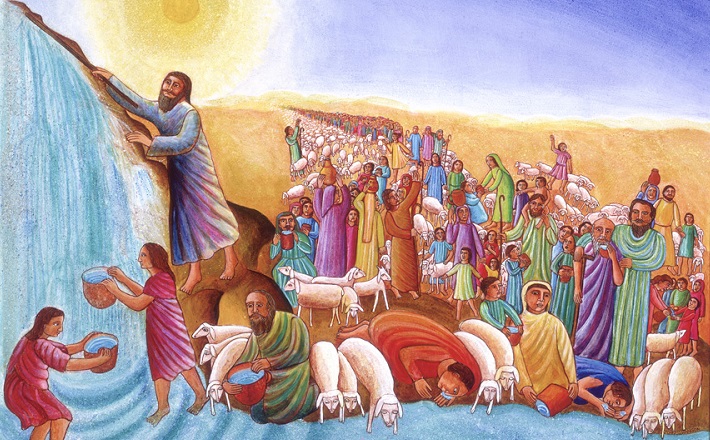Commentary on Song of Solomon 2:10-13, 8:6-7
Week 4 (August 13, 2023)
Song of Solomon 2:10-13; 8:6-7; complementary Gospel: Mark 8:35-37
We end this preaching series with the Song of Solomon. I have written of the Song at some length elsewhere on this website, so for the sake of space, I’ll refer readers to that commentary.
In short, there are two primary interpretations of the Song of Songs. The traditional interpretation is that it is an allegory of the love between God and Israel or between Christ and the Church. The dominant interpretation in modern times is that it is nothing more than ancient erotic love poetry.
I would argue that the Song is both of these things. It is a celebration of the love of a man and a woman for one another, a love “strong as death” (Song of Solomon 8:6), a love reflected in the renewed life of the earth itself (Song of Solomon 2:10-13). At the same time, the Song is also a celebration of the love between Christ and the Church, a love that is in fact stronger than death, sealed by the Resurrection.
As Phyllis Trible and Ellen Davis have both argued, the Song is a reversal of the curses of Eden. The relationship between man and woman is restored. In place of Eve’s punishment in Genesis 3:16 (“your desire shall be for your husband, and he shall rule over you”), the woman in the Song declares, “I am my beloved’s, and his desire is for me.”1 In fact, the woman’s is the dominant voice in the Song. She is in a full, robust, and mutual relationship with her beloved.
The rupture between humanity and the earth is also restored. Here, in the garden of the Song, there are no thorns and thistles (see Genesis 3:17-19). Indeed, the earth itself rejoices with the lovers.
Finally, the rupture between humanity and God is restored, if one understands the Song allegorically, as interpreters have done for 2000 years. One of the dominant biblical metaphors for the relationship between God and Israel (and later, Christ and the Church) is that of marriage. This metaphor takes some troubling turns in the prophets (see Hosea), but in the Song, the marriage is healed and renewed and rooted in love, love as fierce as the grave, love unquenchable (Song of Solomon 8:6-7).
This summer series ends with the Song of Songs. And it is appropriate that it does so because it is here, finally, in the Song, that we see what makes for the good life. That is, we see that the good life consists of right relationships—between man and woman, between humanity and the earth, and between humanity and God. In the love described in the Song, we see a reflection of the love that first called the world into being (Proverbs 8), that continues to sustain it season by season (Ecclesiastes 3), and that will bring it to new life beyond death itself (Revelation 21). Such love is worth preaching about, and the Song of Songs gives us evocative and lush language to do so.
Notes
- The Hebrew word translated “desire” occurs in the Old Testament only three times. The author of the Song, by using this rare word, is deliberately referring back to the Garden of Eden, where the rupture between man and woman first occurred.


August 13, 2023